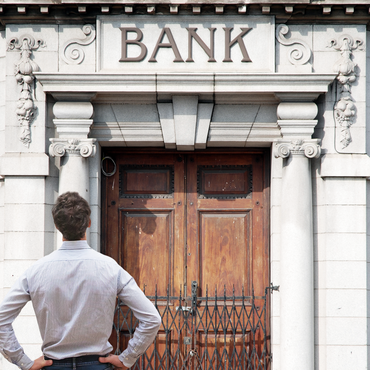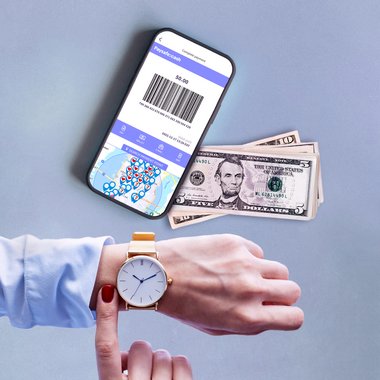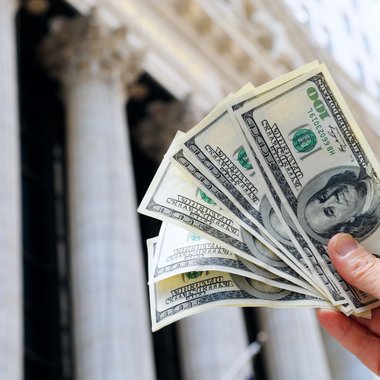Why tackling financial inclusion will be key to the U.S.’ COVID-19 recovery
Mar 23, 2021The economic impact of the pandemic has hit many American consumers and businesses hard, and some of those worst affected are the unbanked and their communities. Addressing the issues of financial inclusion must be a priority in the post-COVID-19 recovery.

COVID-19 has been the catalyst for societal change, not only in our private lives through lockdowns, home-schooling and homeworking. The impact on businesses has also been seismic; with rapidly changing consumer habits merchants have needed to react quickly and efficiently to continue operating through the current challenges and not lose their customers.
One of the critical modifications businesses have needed to address is at the checkout. Consumers have been paying differently online during the pandemic, and not just because existing customers are developing preferences for payment methods that do not share their financial details with the vendor (although this is also true). A key group driving this shift away from card payments online towards alternative payment methods are new customers that, for several reasons, had not participated in eCommerce and other online services such as financial services prior to the outbreak of the pandemic. So who are those new customers? In many countries such as in the U.S. they include cash-payers who have been forced to move to online payments for the first time.
Research carried out by Paysafe during the first wave of the pandemic revealed the extent to which the acceleration of U.S. consumers’ shifting to eCommerce was outpacing their reduced reliance on cash. For example, the data revealed that 25% of all U.S. consumers had shopped online for the first time during the pandemic. And while 60% of U.S. consumers agreed that cash was still the most reliable form of payment in a crisis, 49% also said that they planned to shift more of their spending online in the future even when COVID-19 is no longer a factor, indicating that this is set to be a long-term trend.
The demand for alternative payment methods
Being financially excluded, as is the case for about 7 million American households, is clearly a significant factor. Not having a bank account or card has prevented many of these new online spenders from easily accessing eCommerce and other forms of online transactions such as rent, utilities or loan payments.
And yet there is a growing demand from these consumers to participate in the digital economy. One permanent impact of COVID-19 is that businesses that accept online payments should reassess the methods they offer in their online checkout. To grow their target customer base, adding new alternative payment options to serve un(der)banked and cash-reliant consumers seems reasonable. For example, eCash solutions enable consumers to initiate a transaction via an online checkout but then complete the process at a physical payment point with cash. This bridges the gap between the un(der)banked and digital commerce by enabling cash consumers to shop and transact online in a low cost and efficient manner, without having to change their preferred payment method.
According to Paysafe research, 47% of U.S. consumers would like to buy products online with cash if it was easy to do so and 43% agreed that they would shop online more regularly if paying with cash was available. These consumers that either cannot, or do not want to, make online payments using other methods such as credit cards, could prove to be a huge target market for businesses in the U.S. in the coming years as we begin to recover from the financial impact of the pandemic.
Financial inclusion beyond eCommerce
Reaching out to cash consumers will not only be important for eCommerce businesses, but also for other financial services that can no longer neglect the big group of potential future clients. As we wrote in another recent article, challenger banks need to seriously consider how to integrate cash consumers into their highly digitised systems, especially in light of competition from traditional banks and technological giants that have also spotted potential in cash-oriented customers.
And interest in putting money in a bank account is generally high for Americans – whereas in February 2020 bank deposits were on the level of 13.4 trillion USD, in February 2021 they went up to 16.3 trillion USD and in March 2021 they reached already 16.5 trillion USD . Yet for 63 million U.S. citizens who are underbanked the options to do so are limited. One of the reasons are high bank fees, many of them cannot afford.
Paying bills, particularly rent, might be a greater concern. The rise of the gig economy, which for many employees means being paid more frequently in cash, fuels the need to pay for essential expenses in cash despite the simultaneous growth of digital payment systems. If this will not be possible, the situation, which already was difficult in 2020, has little chance of improving for renters as well as for small real estate companies.
Looking ahead
When facing a crisis, new solutions must be found that solve issues not only for private consumers but also for businesses. As the U.S. moves swiftly to re-energise its economy in an era of rapid digitisation of services, keeping a focus on financial inclusion and not further disadvantaging consumers that are either reliant or prefer cash may tick many boxes. Of course there is an altruistic element to providing financial services and access to eCommerce to the un(der)banked but there is a significant commercial opportunity as well, which businesses must consider as we look to recover beyond the pandemic.



